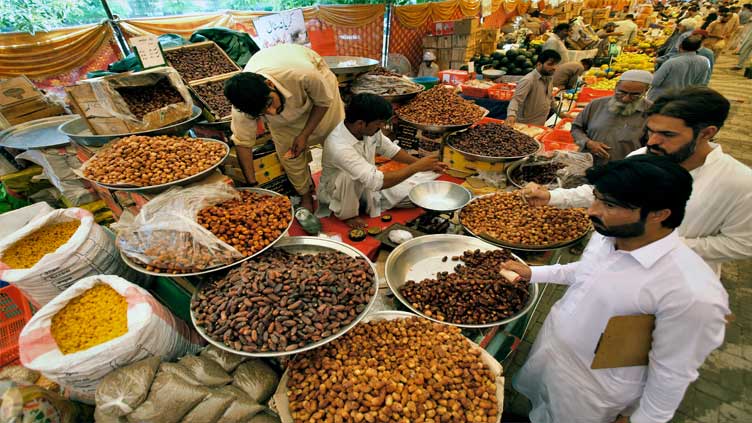Pakistanis gear up for Ramadan amid rising prices, political uncertainty

Pakistan
Markets seem more concerned about the sky-rocketing prices than who rules the country
(Reuters) - As Ramadan approaches, people in Pakistani cities usually throng markets purchasing food and provisions for the holy month of fasting.
But some Pakistanis, already squeezed by inflation, are feeling the pinch of rising prices as the soaring costs of energy and commodities internationally impact the country.
“I came down here for Ramadan shopping. But I see that the price of everything has gone up to almost double. I intended to purchase things sufficient for a month but the rates are so high that I have to cut down my shopping,” said customer Mohammad Sami, who came to buy provisions at a wholesale market in Karachi told Reuters on Thursday (March 31).
Ramadan this year comes amid a political crisis as Pakistani Prime Minister Imran Khan on Sunday (April 3), faces a parliamentary no-confidence vote seeking to oust him from power.
But people at the markets seem more concerned about the sky-rocketing prices than who rules the country.
“The ruler should think about the welfare of people. People are least bothered whether the Prime Minister is Imran Khan or it is Shahbaz Sharif. People want flour, ghee, edible oil and sugar at cheaper rates,” said customer Mansoor Ali.
Pakistan s debt-bound economy has long been hobbled by problems ranging from a wasteful and inefficient power sector to weak tax collection, poor productivity and minimal value added exports.
In capital Islamabad, customer Syed Hasnain Zaidi, indicated that price hikes were becoming a routine during Ramadan in Pakistan unlike other countries that bring down prices at festivals.
With barely a few days to Ramadan shopping was muted in markets across Islamabad. The reason was squeezed buying power, said owner of a date shop, Asim Ashfaq.
“Compared to previous years, the rates of dates have escalated 20 to 25 percent this year. As the rates go up, the dates are becoming out of reach for the poor, even common people who have three to four children. You can see the situation at the bazaar as it is deserted at the time when a few days are left for Ramadan. The customers do not have the buying power,” he told Reuters.
Pakistan’s top economic decision-making body has approved the Rs8 billion ‘Ramadan relief package’ to provide relief to people facing high inflation rates. Under the package, at least 19 essential items will be made available at subsidized rates to the people at 6,000 utility stores across the country.
Ramadan, which depends on the sighting of the new moon, is expected to begin in Pakistan on Sunday (April 3), the first day of fasting, a day after it starts in most other parts of the Muslim world.
Pakistan is a predominantly Muslim country where more than ninety percent of its more than 220 million people practice Islam.

